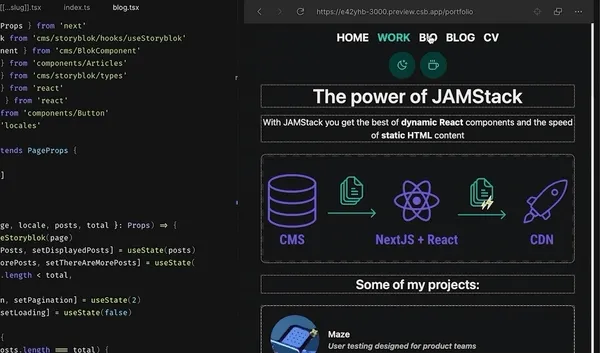

Developing NextJS + CMS is slow. Here's the fix
by Pablo Varela on Wed Jun 15 2022The problem
React Fast Refresh makes it very fast to develop components for your app. You see the changes in the code immediately. But sometimes you need to refresh the page or go to a different one, which is very slow when you are using getStaticProps.
It’s slow, but like, really slow. I’ve been using a CMS as the backend of the website you’re seeing right now (pablopunk.com). It’s a great experience to manage your data like that, but when it comes to loading the data when you’re coding a page, it just takes so much time if you’re jumping between pages
The solution: cache
When you are coding you don’t always want the latest data from the CMS, a cached version is usually good enough to ship the feature or fix you’re working on. That’s why I implemented a cache layer on my stack.
Redis
I chose Redis, but any other method will work. I started with a local server, because I only needed it while coding. But later I moved to a database in upstash.com: it’s still Redis, but you don’t care about running the server! This allowed me to use Codesanbox Projects to easily run my dev environment.
getStaticProps
Here’s what I had before the cache implementation:
const pageData = await getPageData(slug, locale)I didn’t want to include the cache logic right there, so I made a helper function on another file that allowed me to use this simple approach:
const pageData = await getFromCache(`${slug}-${locale}`, () => getPageData(slug, locale))The function getFromCache takes a string as an argument (the key in the database) and a function to get the data — that allows to separate the data-fetch implementation from the cache implementation:
export async function getFromCache(key: string, fetcher: () => Promise<any>) {
// don't use cache in production or redis is not connected
if (!redis || !isDev) {
return fetcher().then((value) => setInCache(key, value) && value)
}
// get from cache
let cache = await redis.get(key)
cache = JSON.parse(cache)
if (cache) {
// renew cache (SWR-ish)
fetcher().then((value) => setInCache(key, value))
return cache
}
// fetch value if it's not cached (and save it)
return fetcher().then((value) => setInCache(key, value) && value)
}Aaaaaaaaaaand now it’s blazing fast!